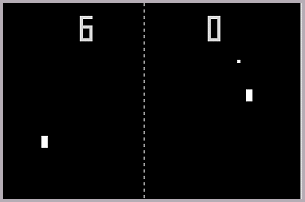overview
An ongoing conversation about web applications is highlighting key points about the future of computing, the web, and the industry.
...
It’s a lot to digest and that’s only scratching the surface. The obvious trend is the key to understanding the future of computing: the web is it. Servers are becoming more important than clients. While raw processor power will remain useful for applications that need it, simple and general purpose data management — including email, scheduling and time management, office applications, and all other text and information manipulation tools — will increasingly move to a globally shared environment that makes it easier to collaborate and easier to access. The recession is over, the slump is ended. Web development is in demand, and the demand is only going to increase.
->
http://www.mezzoblue.com/archives/2004/06/23/web_apps_are/index.php
the location field Is the new command line
I’ve been thinking about the rise of the web as an application platform for a while. But what hadn’t occurred to me until I read Spolsky’s essay last week is this, which I think is quite remarkable: Microsoft totally fucked up when they took aim at Netscape. It wasn’t Netscape that was a threat to Windows as an application platform, it was the web itself.
They spent all that time, money, and development effort on IE, building a browser monopoly and crushing Netscape — but to what avail? Here we are, and the web is still gaining developer mindshare at the expense of Win32.
There are certainly exceptions — banking sites come to mind — but for the most part, web apps are being built to run in any modern browser, not just IE.
I think Spolsky is very much correct that Microsoft is losing the API war. But what’s ironic is that they’re losing this war despite the fact that they won the browser war. Winning the browser war — destroying Netscape — was supposed to prevent there ever even being an API war.
->
http://daringfireball.net/2004/06/location_field
how microsoft lost the api war
However, there is a less understood phenomenon which is going largely unnoticed: Microsoft's crown strategic jewel, the Windows API, is lost. The cornerstone of Microsoft's monopoly power and incredibly profitable Windows and Office franchises, which account for virtually all of Microsoft's income and covers up a huge array of unprofitable or marginally profitable product lines, the Windows API is no longer of much interest to developers. The goose that lays the golden eggs is not quite dead, but it does have a terminal disease, one that nobody noticed yet.
...
I'm not sure how I managed to get this far without mentioning the Web. Every developer has a choice to make when they plan a new software application: they can build it for the web or they can build a "rich client" application that runs on PCs. The basic pros and cons are simple: Web applications are easier to deploy, while rich clients offer faster response time enabling much more interesting user interfaces.
Web Applications are easier to deploy because there's no installation involved. Installing a web application means typing a URL in the address bar. Today I installed Google's new email application by typing Alt+D, gmail, Ctrl+Enter. There are far fewer compatibility problems and problems coexisting with other software. Every user of your product is using the same version so you never have to support a mix of old versions. You can use any programming environment you want because you only have to get it up and running on your own server. Your application is automatically available at virtually every reasonable computer on the planet. Your customers' data, too, is automatically available at virtually every reasonable computer on the planet.
->
http://www.joelonsoftware.com/articles/APIWar.html

